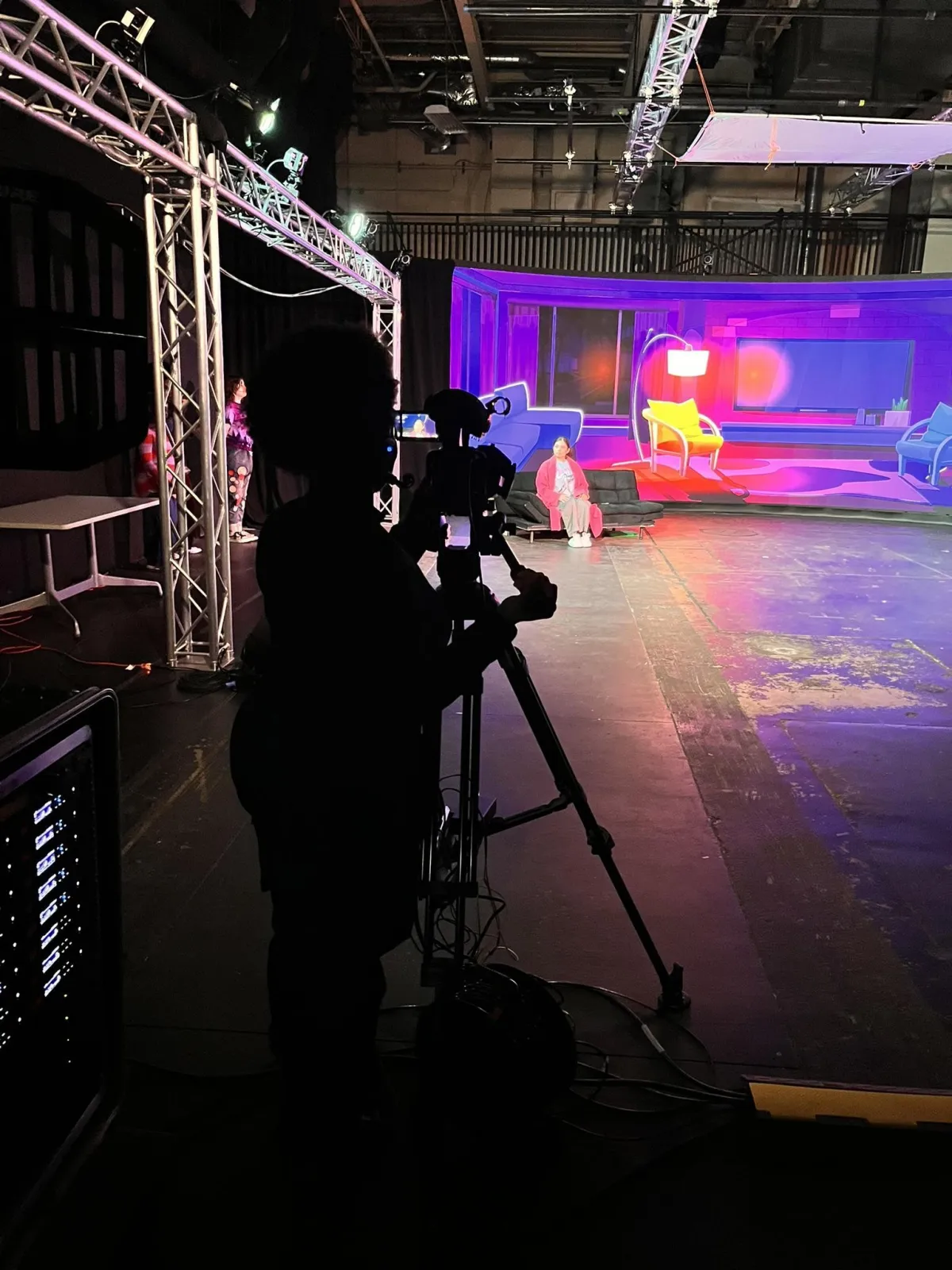
From Stage to Set: How Theater Skills Power Real Careers in Video & Film

“We all create.” That’s never been more true than it is right now. With a phone in your pocket, you can capture a story, edit it on the bus, and share it with the world by lunch. But while the tools are everywhere, the craft still matters, and theater is one of the best places to learn it.
We just wrapped up a film session at Backyard Dream Studio, a business that literally began in a backyard. Founder Alex Kudrna started as a kid with a camcorder, shooting home videos for fun. Today, he runs a full-fledged production company. That journey, from backyard creativity to professional results, mirrors the path our students can take. I know because Alex was one of my students. Theater is the training ground. Video/film is one of the many careers they can grow into.
Why Theater Is the Best Start You Already Have
Theater builds a mindset: collaborate, solve problems, tell the truth onstage. Film needs the exact same thing. just with a camera between the artist and the audience. The overlap is huge:
Stage → Set: Skill Crossover Map
Directing → Directing/Assistant Directing
Blocking becomes blocking-for-camera; beats become shot lists; call times replace half-hour.Stage Management → 1st/2nd Assistant Director, Script Supervisor, Production Coordinator
Calls, schedules, paperwork, continuity, SMs already think like line producers.Lighting → Gaffer/Best Boy, Grip, DP Pathway
Color, angle, motivated sources; now add practicals, flags, and exposure.Scenic/Props → Art Department, Set Dec, Props Master
Visual storytelling through environment, just swap platforming for dressing and continuity.Costume/Makeup → Wardrobe, HMU, SFX Makeup
Quick changes become continuity changes; character arcs live in fabric and skin.Sound → Location Sound Mixer, Boom Op, Post Sound
Mic placement, noise control, and “quiet on set” discipline are already second nature.Run Crew/Deck → Grip/Electric/PA
Safe, efficient movement; cable management; set etiquette. A direct translation.Dramaturgy → Development, Script Coverage, Editing Story Sense
Arc, tone, pacing; in film, that brain is gold for editors and producers.Acting → On-Camera Performance, Voiceover, Casting
Objectives and actions still rule; now it’s frame size, eyelines, and hitting marks.
The New Reality: Everyone Can Publish, But Not Everyone Can Produce
The modern pipeline is democratized: write, shoot, edit, publish. But the gap between “posted” and “professional” is craft. Theater students already practice the tools that align with professionalism.
Let's start with the rehearsal process. Theater kids show up. Prep beats panic, and anyone who has been on stage unprepared knows that feeling. There is also a patience to rehearsal. Hurry up and wait is a real thing, on the set and during tech. Staying focussed and in the moment is a learned skill.
No one works alone. Theater, and film making, is a team effort and often requires team problem solving. Working with an ensemble, and building a strong report with that group, is the key to successful productions, on and off stage as well as behind the camera.
Tell the story first. Sometimes we get in our heads as artists and what seemed like a great idea over dinner doesn’t translate to the stage. Or screen. Both forms focus on the story, and film has the benefit of being able to carve out visuals not available on stage. Framing those pictures, driving the audience’s attention, and clarifying the point are key in both forms.
Constraint builds creativity. If you have to tell a story on a limited budget, ask the folks who grew up in high school theater programs. Making magic out of thin air is a way of life. Those habits make a set run smoothly and make content stand out.
A Real-World Case Study: Backyard Dream Studio
Backyard Dream’s origin story is the blueprint our students need. Start where you are. Make something. Make it better. Make it reliable. As Alex scaled from backyard shoots to full productions, the constant wasn’t gear, it was process. And you all know how much I love the process.
Careers Are Plural And They Start Now
Not every student will chase Hollywood. But every student benefits from learning to plan, communicate, and deliver a finished story. Those skills travel: marketing, live events, education, nonprofit, social media, corporate comms, small business branding. Video is language; theater teaches grammar.
Backyard Dream Studio is proof that creative discipline scales. It might start in a backyard. It can absolutely end on a soundstage—or in a thriving local studio that pays people to make beautiful, useful work for their community.
If you’d like a ready-to-use Theater → Film Crossover Toolkit (lesson plans, shot-list templates, call-sheet sample, set etiquette mini-course), join Backstage AIC, or email me. I’ll send the pack to you.